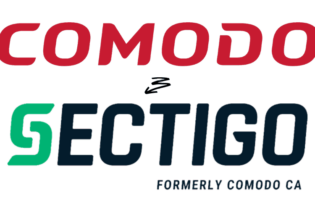
IoT (Internet of Things) devices are everywhere. From home appliances and security systems to autonomous farming equipment and wireless inventory trackers, the IoT powers our lives and cities. The positive results include enhanced traffic management, increased safety, and reduced pollution. But where there’s an Internet connection, there’s potential for a breach.
So, what’s the best way to keep IoT safe? It all starts with the basics. Double down on your passwords, use multi-factor authentication, update the software regularly, and, of course, encrypt your connection when going online. In this article, we’ll discuss how to secure your devices with an IoT device certificate and keep sensitive data in transit away from hackers’ reach. Let’s dive straight into it!
Table of Contents
- What Is an SSL Certificate for IoT Devices?
- What Are the Benefits of IoT Device Certificates?
- Who Uses SSL Certificates for IoT Devices?
- How to Get an IoT Device Certificate?
- How to Properly Manage IoT Device Certificates?
What Is an SSL Certificate for IoT Devices?
An IoT device certificate is a type of digital certificate that authenticates device identity and secures communications between two devices through the use of PKI (Public Key Infrastructure). Device certificates ensure strong encryption and data integrity throughout the device’s lifecycle. In simple terms, IoT device certs convert data into an incomprehensible format – a random string of characters impossible to decrypt without the corresponding private key. As a result, devices can identify other trusted devices and servers.
Is there a Certificate Authority for IoT devices?
A device certificate is usually issued by an organization’s internal certificate authority, in other words, a private CA. In this case, the certificate is signed with the private key of the organization’s root certificate (the foremost certificate created to sign other certificates).
In contrast, a public CA is an independent third-party entity that issues commercial publicly trusted client certificates. The client certificates, also known as TLS/SSL certificates, authenticate users’ identities and encrypt communications over public networks, whereas device certificates validate electronic objects and work only on internal (private) networks.
What Are the Benefits of IoT Device Certificates?
When it comes to data security, device certificates solve an array of issues, from establishing digital identity to helping prevent unauthorized users from accessing and tampering with the data in transit. Best of all, device certs are lightweight and cost-effective. Here are some benefits of IoT SSL certificates that make them a must-have for every organization that employs IoT devices.
- IoT SSL certs reduce the risks of man-in-the-middle-attacks by providing unbreakable encryption and protecting sensitive information shared between IoT devices.
- Device certificates are extremely flexible and can secure a wide range of IoT devices with different utilization and complexity.
- IoT security certificates help you scale device security across multiple networks and geographic regions.
- Device certs are easy to implement and manage. You can revoke and replace them without affecting too much your operations and finances.
- In high-volume environments, IoT certificates are highly cost-effective. Whether your in-house team manages them, or an outsourcing company, the costs are kept in check and predictable.
Who Uses SSL Certificates for IoT Devices?
Both IoT manufacturers and organizations that deploy these devices use IoT certificates to authenticate their identity and encrypt communications. Essentially, all industries and environments benefit from device certificates’ security, flexibility, and scalability.
In an ideal world, all IoT manufacturers would secure their devices before shipping them out the door, but unfortunately, many don’t bother and this crucial task falls on the organizations that actually use them. That’s why it’s imperative to secure your IoT device as soon as it hits your office.
Besides IoT, device certificates can also help you protect mobile devices, including enterprise and personal devices such as BYOD (Bring Your Own Device). Other device certificate applications include hardware and network appliances such as gateways and perimeter firewalls.
How to Get an IoT Device Certificate?
Unlike SSL and email certificates, you can’t buy a device PKI cert from a trusted public certificate authority. You have to generate it internally, on your system and network. To do this, you need a private CA. You can go about this in two ways:
- Build your own private CA using tools such as OpenSSL utility or Microsoft CA.
- Hire a managed PKI (mPKI) provider to take care of all your authentication and encryption needs.
The route you take will depend on your budget and the number of devices you need to secure. For smaller companies, the first option may be a viable choice, but for larger businesses and enterprises, letting third-party experts configure and manage digital certificates is an efficient way to streamline security and operations.
How to Properly Manage IoT Device Certificates?
IoT device certificates are a powerful addition to the security practices of any organization, but they will work as intended only if you manage them correctly. Your main priority is to store the certs in a safe location and renew them before they expire.
Certificate storage is a growing concern for organizations. Thankfully, third-party enrollment services address this need. With a database of issued certificates stored in one central place, certificate management becomes a breeze.
When you set security protocols defining the responsibilities of managing certificate lifecycles, the entire process remains smooth and predictable. And, with many useful PKI management tools available, creating an environment tailored to your specific needs is affordable and easy.
Final Thoughts
As IoT devices pervade every aspect of our life, securing the communications between them and servers is essential. IoT devices are susceptible to devastating cyberattacks that could jeopardize anything from appliances in your kitchen to crucial industries’ systems. Protecting them with an IoT device certificate is the most sensible thing any organization could and should do. By adding an IoT SSL certificate, you eliminate numerous threats and ensure the uninterrupted functionality of your devices
Save 10% on SSL Certificates when ordering today!
Fast issuance, strong encryption, 99.99% browser trust, dedicated support, and 25-day money-back guarantee. Coupon code: SAVE10
























